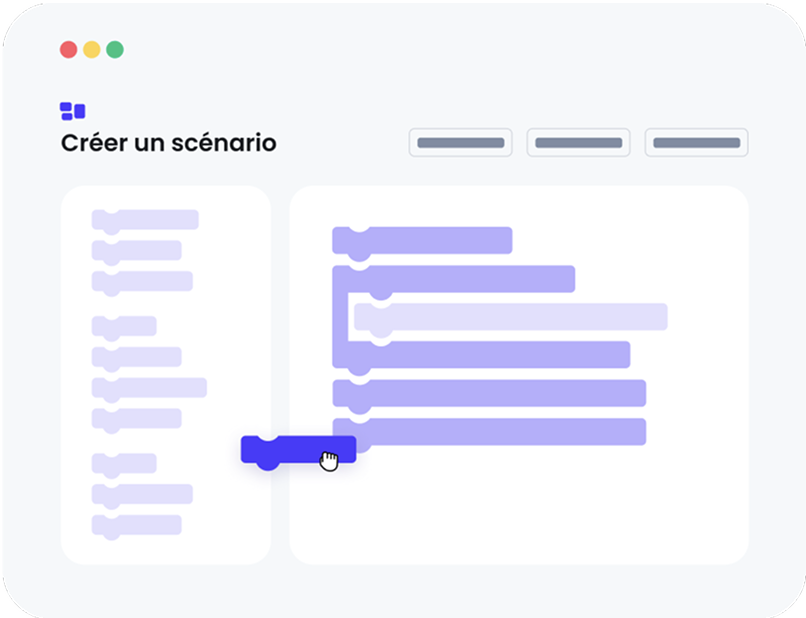Performance testing: guarantee web performance.
Leader in No-Code Test Automation .
+Over 100 companies place their trust in us

Performance testing.
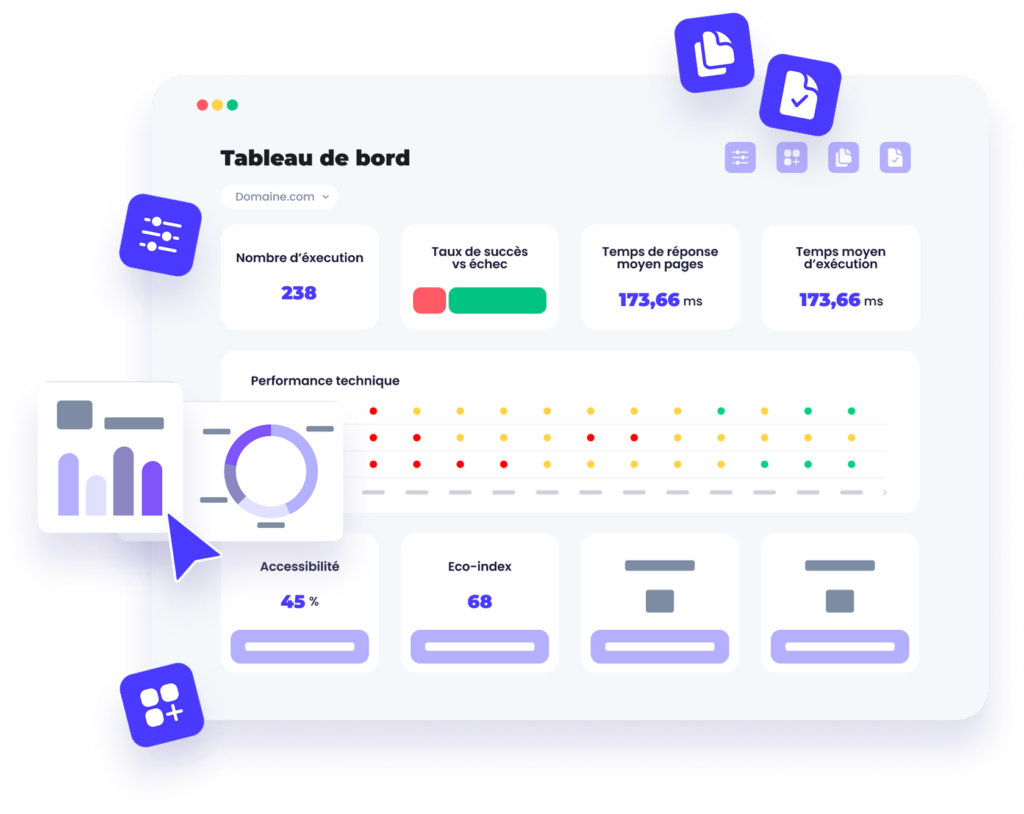
What is Web performance testing?
Web performance tests enable you to evaluate the stability and responsiveness of websites and web applications. The aim is to ensure that everything loads quickly enough, that the system doesn't crash and that its performance doesn't adversely affect the user experience.
Web performance testing is usually carried out at critical moments, such as the introduction of a new feature, the launch of a new version or application, and prior to major events and promotions. The best way to accurately assess how a website behaves under heavy load in real-life situations is to test it in production.
KPIs analyzed during performance tests
- System metrics: CPU usage, Memory usage
- Network metrics: Bandwidth, Latency, Throughput, Requests/seconds
- Functional Reliability metrics: Failure rate per campaign, Average time for test scenarios
- Metrics for UX and conversion (Web Core Vitals): Largest Contentful Paint (LCP), First Input Delay (FID), Cumulative Layout Shift (CLS), First Contentful Paint (FCP), Average load time
What are the different types of performance tests?
Load tests, scalability tests, stress tests, peak tests, configuration tests...
Test faster. Correct sooner.
The test at your fingertips,
and excellence to boot!

Detect incidents before your users do
Receive real-time alerts as soon as an incident occurs, and act quickly to keep your site up and running effortlessly.
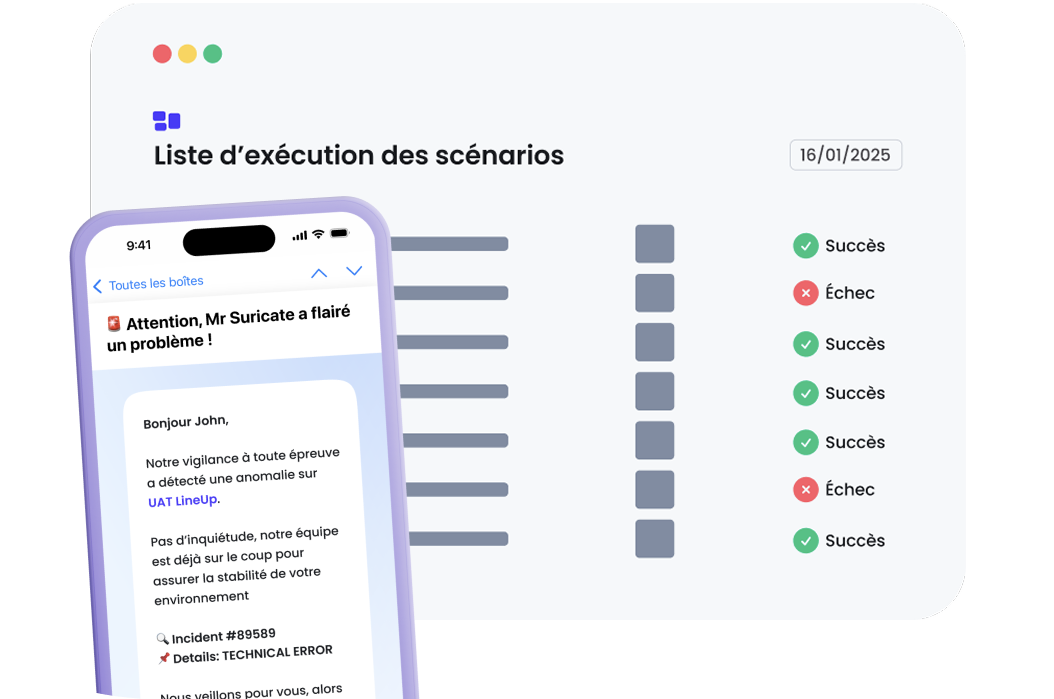

Your data under control
Visualize your website's performance in real time thanks to a customizable dashboard.
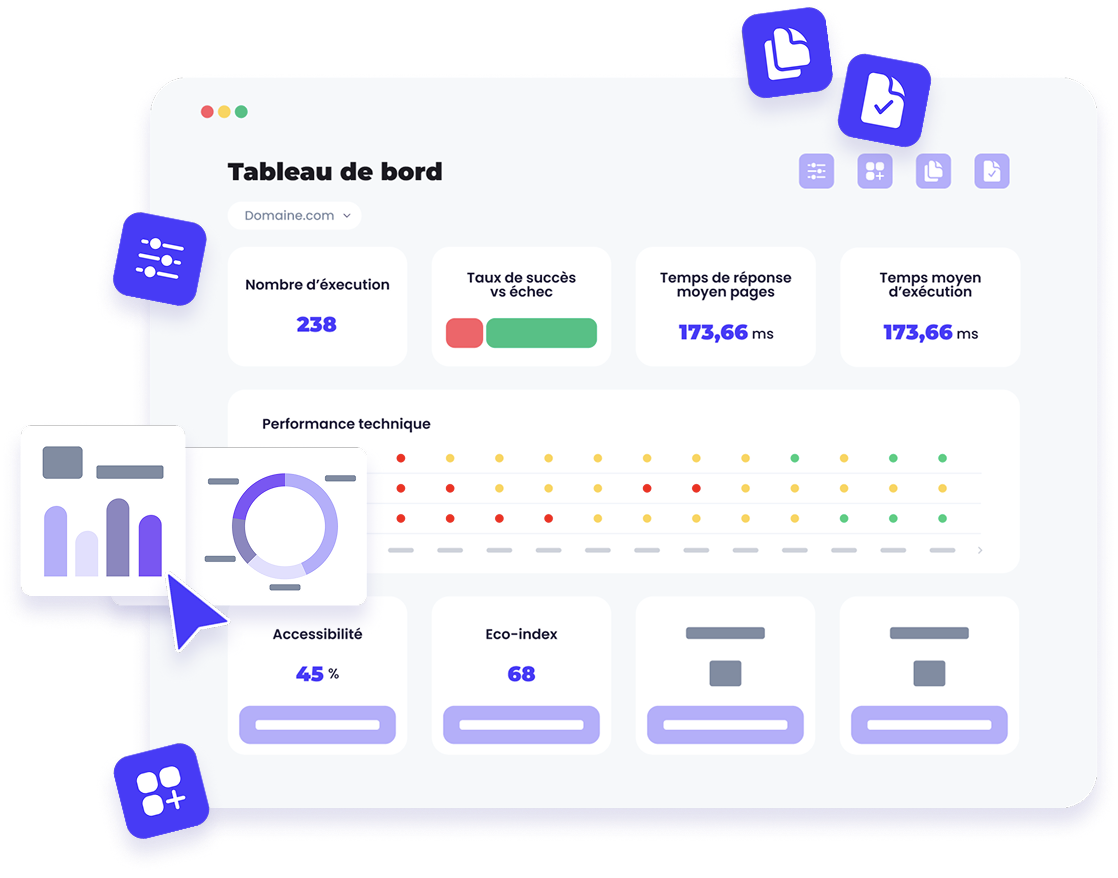

Scheduled campaigns
Plan your test campaigns, integrate your data and ensure complete end-to-end security.
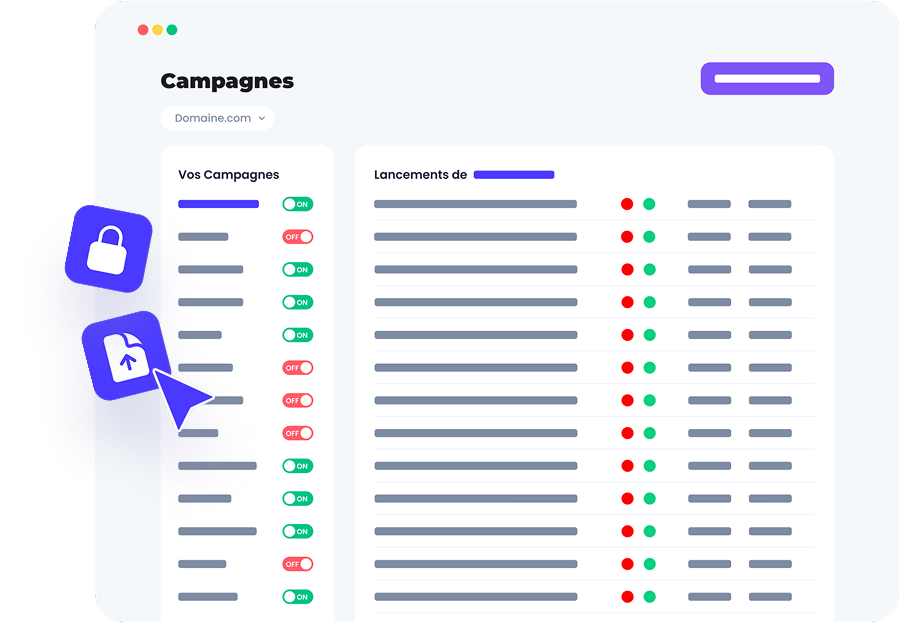

Reliable data for flawless monitoring
Track data accurately and validate user paths effortlessly.
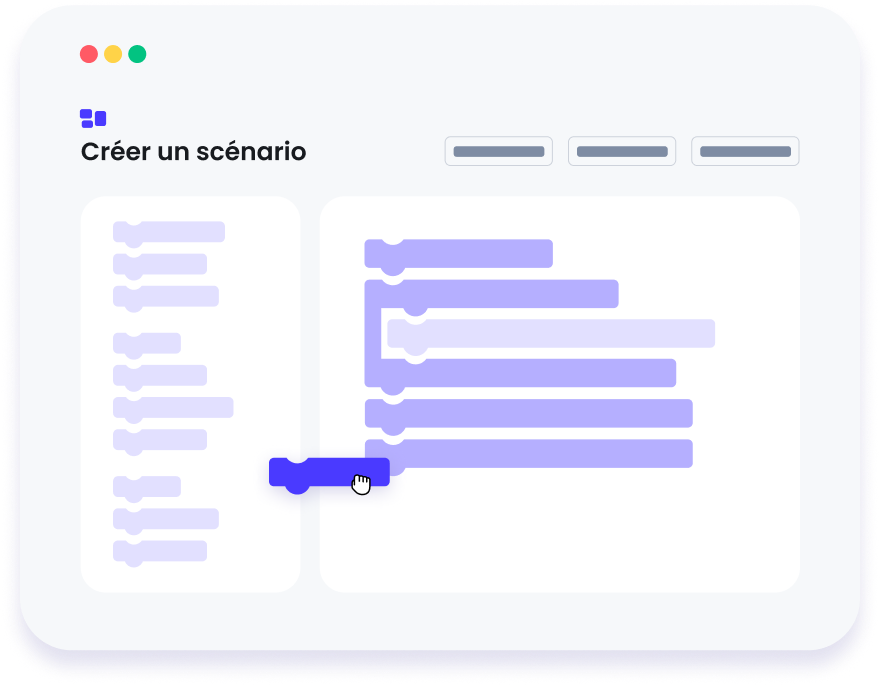

Accessibility made easy
Quickly identify non-conformities and optimize your platform's user experience.
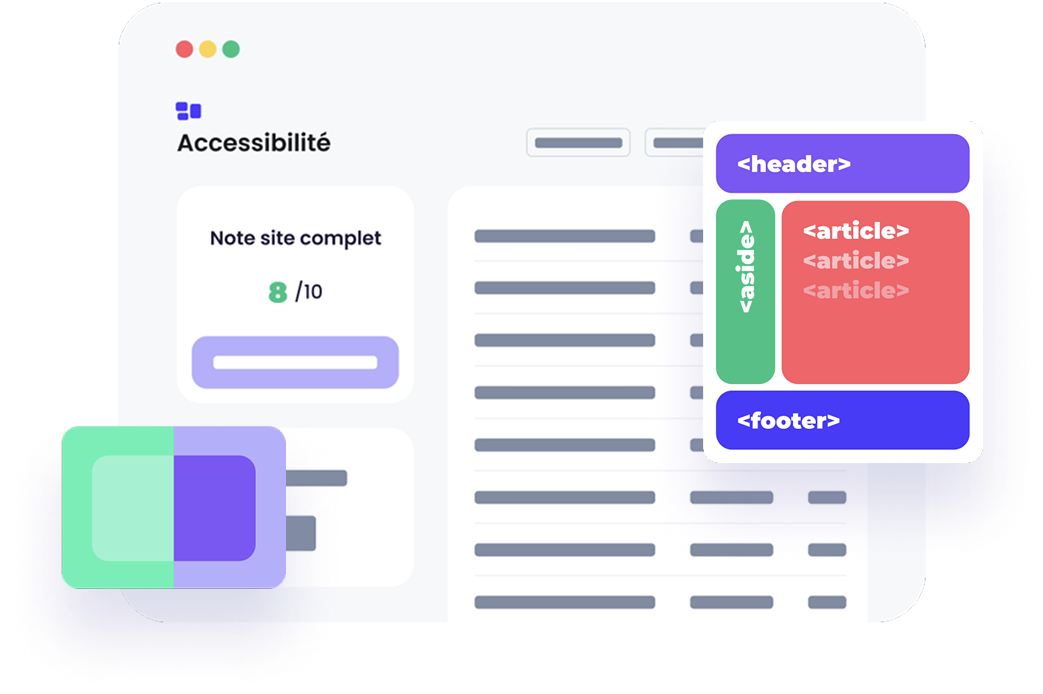

Easily create and maintain your scenarios
Quickly identify non-conformities and optimize your platform's user experience.
